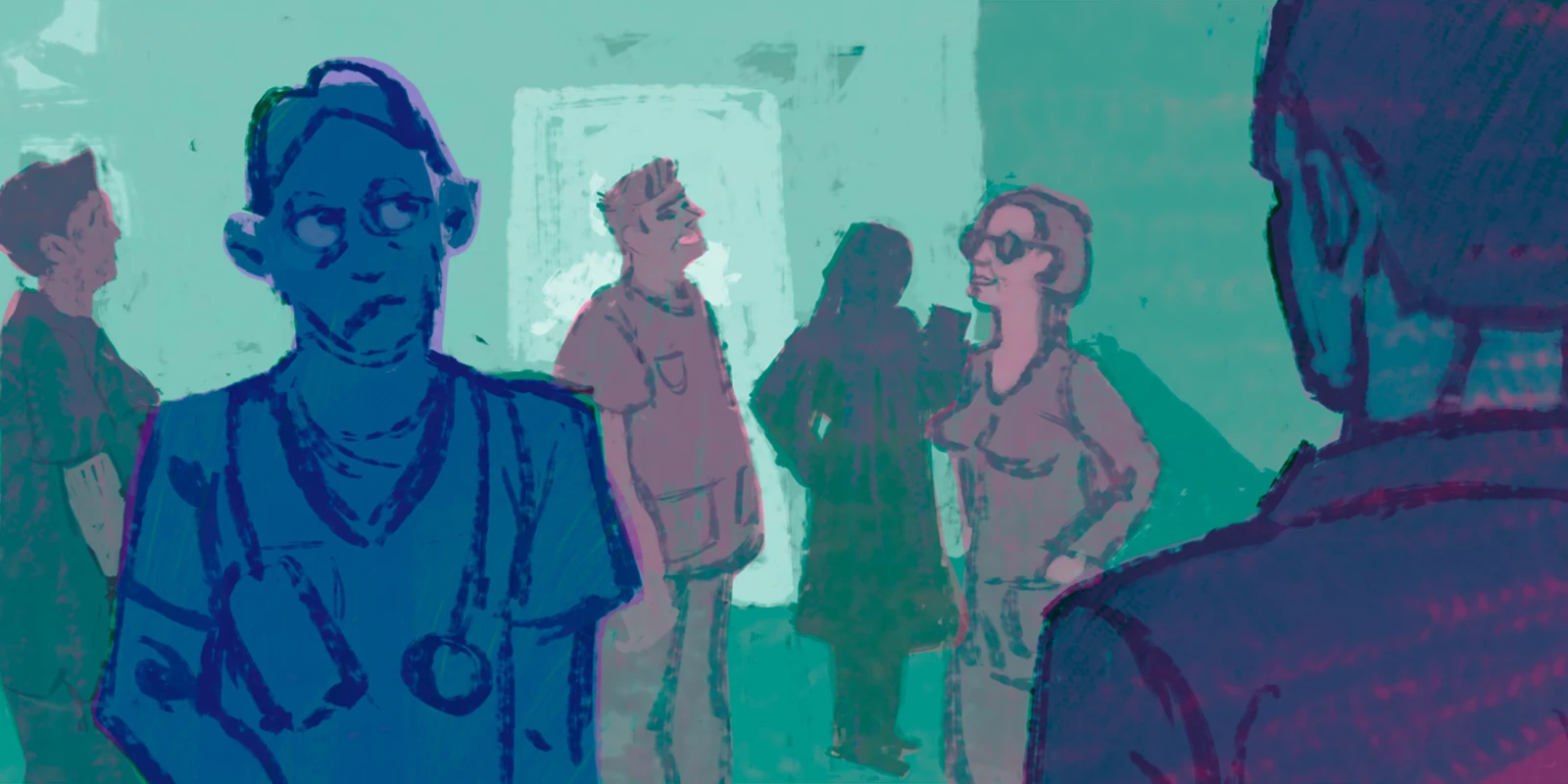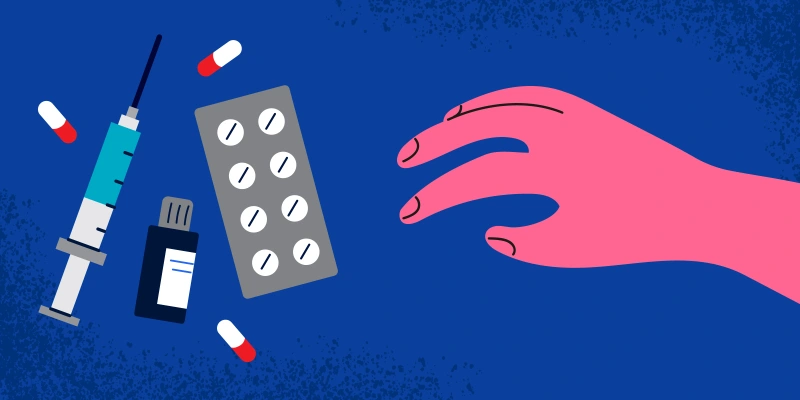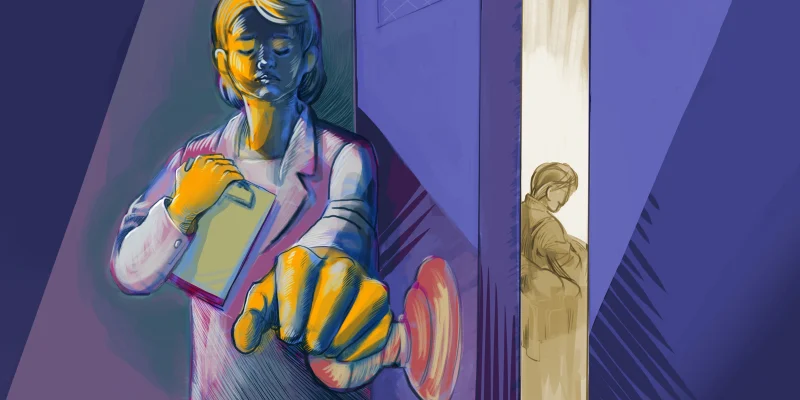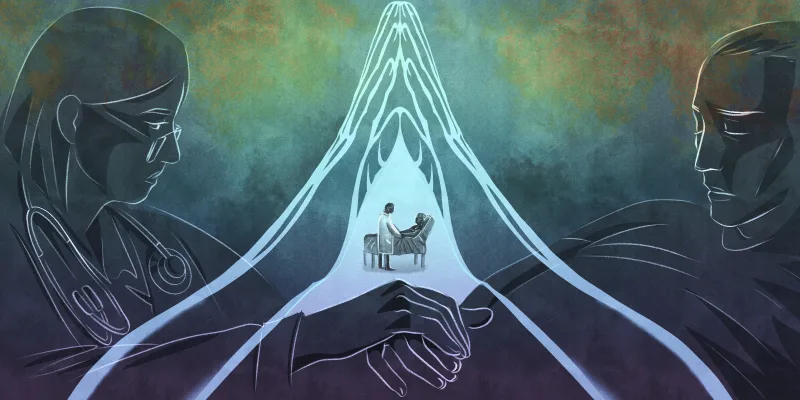On my prayer rug, I sit on the hospital’s chapel floor with my hands raised. The chapel is more closet than cathedral. Four chairs wide, three rows long — it’s cozy, not claustrophobic. A thick wooden door insulates it from the hospital’s chaos.
My pager pierces the peace. As a courtesy to others sheltering in the chapel — Muslims like myself, Christians for whom the room was designed, and others seeking a tranquil moment – I finish praying quickly, place my folded rug in the basket by the door, and step outside.
Sometimes I dread this moment.
To be floating in the chapel’s spiritually soothing waters of mutual respect and then suddenly enter a hospital environment with occasional riptides of disrespect gives me anxiety. There are the familiar refrains about “difficult” patients: “He’s a bum, not worth my time” or “She’s back again? She’s just lying to get what she wants.” Some clinicians comment on our patients receiving social services, saying, “These freeloaders are so entitled. They don’t take care of themselves but expect the best.” When these patients are not fluent English speakers, some professionals barely listen before cutting them off. I’ve wondered whether the same clinicians would actively listen and take these patients’ concerns seriously if the patient was a wealthy white woman. Instead, the poor woman of color is given an off-the-chart diagnosis of “Status Hispanicus.”
These comments are never made directly to patients. Yet it gives me pause when I see someone being kind to the patient but then speaking ill of them behind closed doors. Venting as a way to express feeling overworked and undervalued in our health care system is real and understandable. However, it does not justify lack of empathy and rude behavior.
Sadly, when backbiting takes a hold of one’s heart, anyone around the victim can be harmed. A nurse once said to me, “Dr. X is a complete idiot. I could do his job better than him. Never consult him.”
I was astounded. Dr. X, who had supervised us both, is highly respected in our hospital. Until then, I admired the nurse and had learned a lot from them. This sudden arrogance and disrespect was unsettling. As a resident, everyone has patience for my incompetence because they know I’m learning. The nurse’s comments, however, scared me; if I am less than perfect as an attending one day, will I constantly have to worry about coworkers bad-mouthing me behind my back?
As I said, backbiting is like an infestation. It can be contagious and is a reflection of a system, not an individual, much in the way public health experts describe other infectious diseases. Shocking though the nurse’s comments were, I was even more disappointed when Dr. X later said about my coworker, “They’re all useless. A nurse will never know what a doctor does.”
It has been hard to reconcile my religious morality with this culture of backbiting creeping beneath our institution’s typical hospitality and collegiality.
It’s not just Muslims who value kindness toward colleagues and patients, however. In a recent American Academy of Family Physicians webinar in September 2021, Dr. Vivek Murthy blew me away when he asked: “When was the last time you heard about somebody being promoted or given tenure because of just how kind and compassionate they were with their patients? I much more often hear about people being promoted because of their publications or research funding they bring to an institution.”
The Surgeon General explained that a clinician’s wealth of knowledge has become the measure of their power in medical society. This observation helped me place the caustic conversations I’d witnessed into cultural context. Health care, at one time predicated on the pure desire to serve humanity, appears to have been infected with ambition, greed, and bottom-lines. Empathy cannot flourish where self-aggrandizement brews. It isn’t surprising then that people seek solace inside the chapel, where they reflect on the glimmer of golden rules and fill their hearts with the sense of belonging to congregations spanning countries and cultures and generations.
However, Islam, like other religions, is not meant to exist in isolation. I cannot hide in the chapel while the world outside crumbles. I have a moral imperative to share good feelings with everyone.
To that end, I found Dr. Amaryllis Sanchez Wohlever’s article on strategies for de-escalating encounters quite helpful for learning respectful methods to approach difficult conversations. Although she addresses the patient-clinician relationship, her four-step technique — “don’t take it personally”; “take a timeout”; “respond, don’t react”; and “check your feelings” — could also work for awkward conversations with peers.
The four steps may help us avoid calling someone out inappropriately. By taking time to process one’s own emotions and approach the situation empathetically, it may sustain and even encourage growth in our relationships. It pairs nicely with the Islamic adage that, when you feel you’ve been wronged by another person, you yourself should create 70 excuses for them. Maybe they slept poorly, maybe they misunderstood, maybe…
The purpose of these exercises is not to give people a pass, but to validate the hurt the backbiting person feels while also reframing the conversation to reinforce that we are all on the same team, with the same mission to heal the sick. In a time of social distancing, an empiric regimen of respect actually keeps us close and keeps us strong.
How have you managed challenging work encounters? Share your strategies in the comment section.
Tajwar Taher is a first year family medicine resident at RWJ University Hospital Somerset. He graduated with an honor’s degree in English literature from the University of Washington and completed his MD at Oregon Health Science University, where he was a leader for the Muslim community on campus.
Illustration by Jennifer Bogartz






